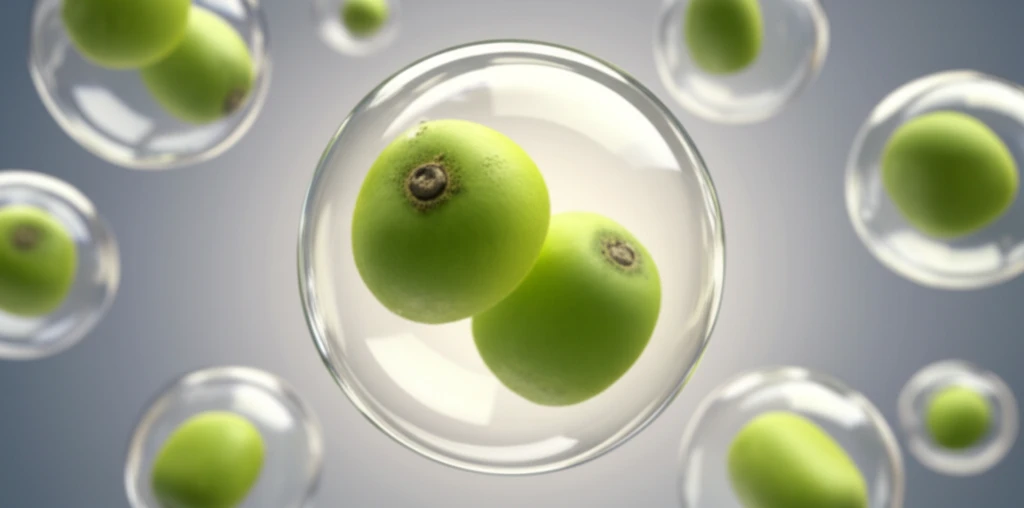
Bruised Kiwis? How 1-MCP Can Keep Your Fruit Fresh!
"Learn how 1-methylcyclopropene (1-MCP) can combat mechanical damage and extend the shelf life of 'Bruno' kiwifruit, keeping them firm and delicious longer."
We all know the frustration of buying fresh fruit only to have it spoil before we can enjoy it. Ripening is a natural process, but factors like mechanical damage during handling and transportation can speed it up, leading to bruised and less appealing produce. For delicate fruits like kiwis, this is a significant concern.
Kiwis are particularly sensitive to ethylene, a natural plant hormone that triggers ripening. When kiwis are bruised, they produce more ethylene, accelerating softening and reducing their shelf life. This can result in significant losses for growers, retailers, and consumers.
But there's good news! Scientists are exploring innovative ways to combat these issues. One promising solution involves the use of 1-methylcyclopropene (1-MCP), a compound that can block the effects of ethylene and slow down the ripening process. This article delves into a study investigating how 1-MCP treatment can help 'Bruno' kiwis withstand mechanical damage and stay fresher for longer.
What is 1-MCP and How Does It Keep Kiwis Fresh?

1-methylcyclopropene (1-MCP) is a synthetic compound used to extend the shelf life of various fruits and vegetables. It works by binding to ethylene receptors in the fruit, preventing ethylene from triggering the ripening process. Think of it as a shield that protects the fruit from ethylene's effects.
- Reduce ethylene production
- Maintain firmness
- Extend shelf life
- Minimize losses due to bruising
The Future of Fresh Kiwis is Here
The results of the study clearly demonstrate the potential of 1-MCP to prevent the acceleration of ripening caused by mechanical damage in kiwis. By inhibiting ethylene action, 1-MCP helps maintain fruit firmness, reduce respiration rates, and extend shelf life. This technology offers a promising solution for reducing waste and ensuring that consumers can enjoy fresh, high-quality kiwis for longer.
